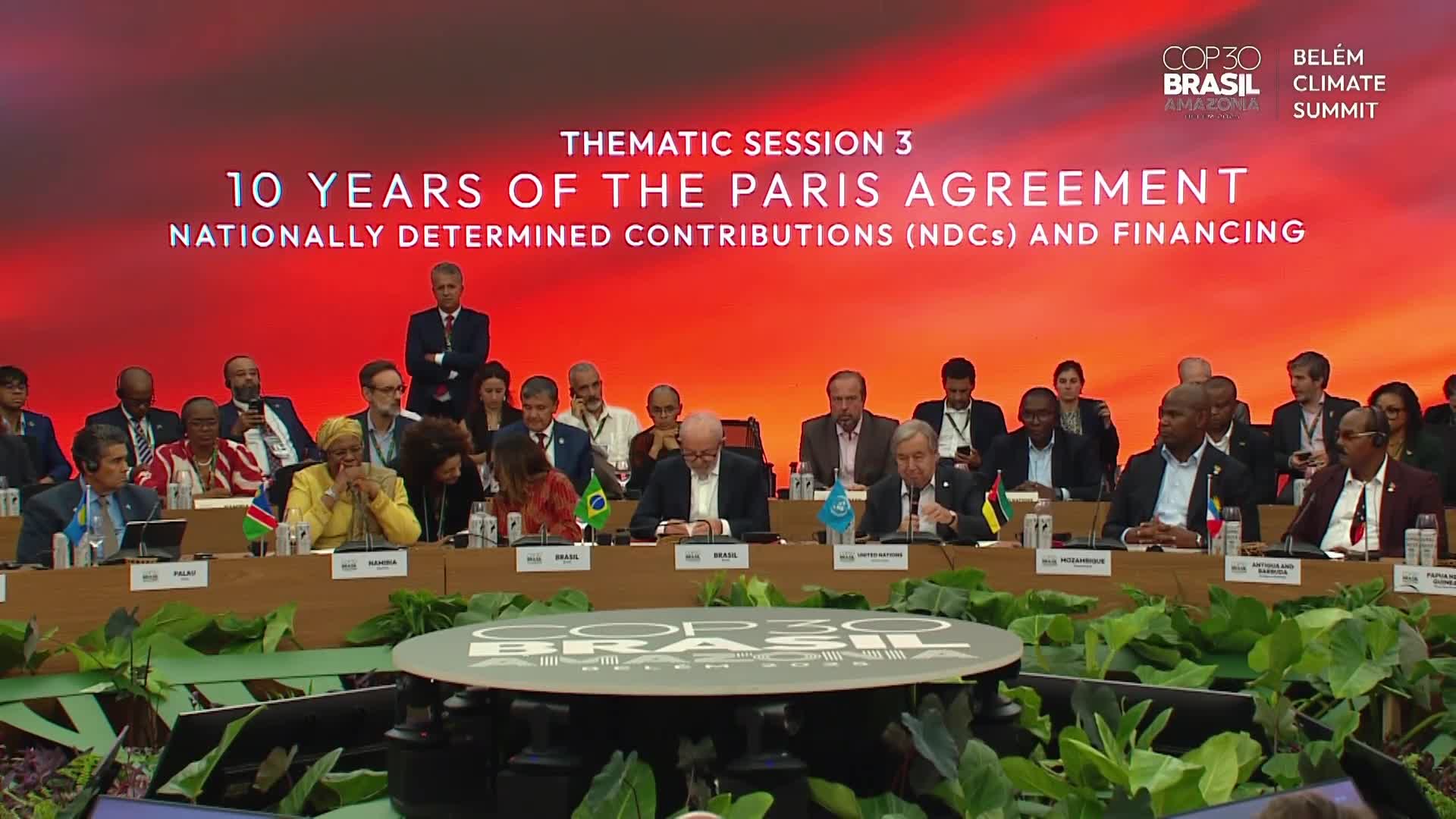Speaker at COP30 urges rapid acceleration of climate action, calls for 60% cuts by 2035
Get AI-powered insights, summaries, and transcripts
Subscribe
Summary
At COP30 in Belén, Speaker 1 said current Nationally Determined Contributions fall short and urged countries to submit stronger NDCs, scale finance and technology support for developing countries, and pursue deep emissions cuts — "Action requires deep emissions cuts 60% by 2035," the speaker said.
At the COP30 plenary in Belén, Speaker 1 addressed President Lula da Silva and delegates, urging urgent acceleration of countries' Nationally Determined Contributions (NDCs) and a step-up in climate finance and technology transfer.
"Science tells us it is still possible to keep temperature rise below 1.5 degrees Celsius by the end of the century," Speaker 1 said, adding that a temporary overshoot in the early 2030s is now likely but "we can manage the scale and duration of that overshoot and bring temperatures back down if you take serious action now." The speaker said, "Action requires deep emissions cuts 60% by 2035 to stay on track to meeting 1.5."
The address framed the Paris Agreement, adopted a decade earlier, as the baseline for global ambition and called NDCs the barometer of countries' commitments. The speaker said recent NDCs showed only limited progress, stating that "the new NDCs delivered just a 10 reduction," and urged an "acceleration plan" to close gaps in ambition and implementation beginning at COP30 in Belén.
To close those gaps, the speaker outlined three priorities: all countries should submit updated NDCs without delay; enabling conditions must be created so countries can meet and exceed their commitments; and developing countries must gain access to the tools and technologies needed for a just transition. The speaker also urged trade policies that allow developing countries to build supply-chain links and retain economic benefits locally.
On energy and land use, the address pushed for cross-sector action to "seize the renewables revolution" by building modern grids and large-scale storage, scaling up energy efficiency, transitioning away from fossil fuels, cutting methane emissions and slashing deforestation.
The United Nations was described as a partner in the work ahead. "Throughout, the United Nations will play its part," Speaker 1 said, and the speaker said they had asked UNDP to present a plan to support countries implementing their NDCs.
Financing was a central focus of the speech. The speaker said annual clean energy investment in developing countries (outside China) must rise more than fivefold by 2030 and that "the 300,000,000,000 promised to developing countries by 2035 must be fully mobilized." The address referenced a roadmap to roughly $1.6 trillion by 2035 as an ambition to restore confidence that climate finance will flow "predictably, fairly, and at scale."
The speaker also called for multilateral development banks to be strengthened to leverage far greater private investment at affordable cost and urged development of innovative finance instruments — including debt-for-climate swaps, risk-sharing mechanisms and proposals such as a "tropical forest forever fund" and carbon markets — along with reforms of the global financial architecture to better serve developing countries.
The address closed with an appeal at COP30 to renew the Paris promise "by kick starting a new decade of implementation and acceleration," and with a call for collective action to "go further and faster together."
